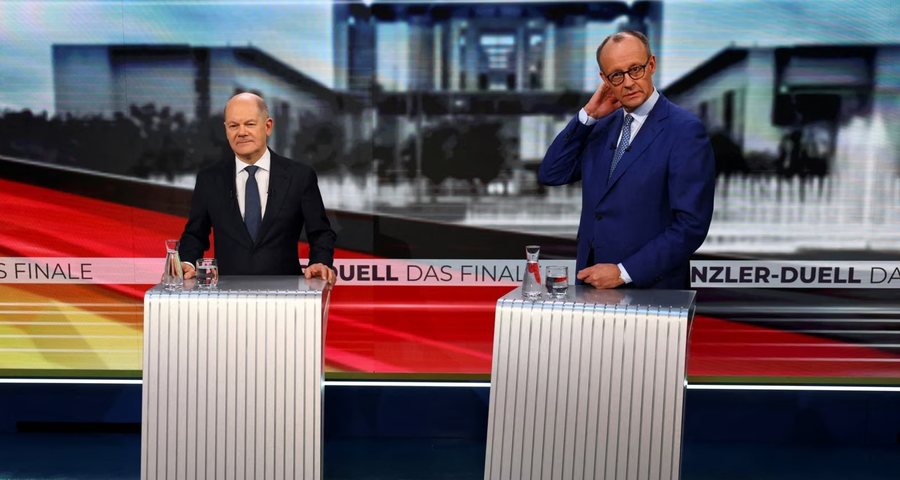
Senior representatives of Germany's conservative Christian Democrats and Social Democrats began preliminary talks on forming a governing coalition on Tuesday. But the two parties, with deep ideological and political differences and vowing not to govern with the far-right Alternative for Germany party, face a complex process of negotiations to craft a governing program that would revive the economy.
Friedrich Merz, leader of the conservative bloc that came first in Sunday's election, said he aims to form a government by April 20, a deadline that is considered too tight due to differences between the parties.
The difficulties may be compounded by Mr. Merz's tough style, which has already been criticized by his potential partners.
"Both sides should try to find a common language. We should talk and move forward. I don't want to talk about specific topics before the talks. Trust should be the main pillar. We need to learn lessons from the current government that failed. Permanent conflicts not only harm those involved, but also harm democracy. We need the will to work together. We should not focus on party benefits, but on solving big problems, to move the economy forward, to give people economic and social security," declared Social Democratic official Manuela Schwesig.
A coalition between the conservatives and the Social Democrats, who came third in the election, is the only chance to form a government if all parties stick to a pledge not to govern with the Alternative for Germany party, which came second in the election. The party received the largest support for a far-right party in Germany since World War II.
The talks being held today include senior officials from both parties and could lead to further discussions with working groups on various policy issues, to draft a detailed plan for the legislative agenda of the next four years.
During the campaign, the conservative bloc focused on lifting economic regulations and promising to limit immigration. The Social Democrats, which include incumbent Prime Minister Olaf Scholz, want to raise the minimum wage and oppose Mr. Merz's vision for tighter border controls. VOA (A2 Televizion)











